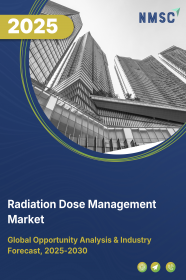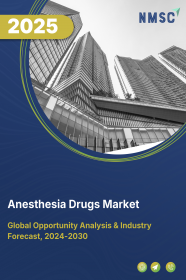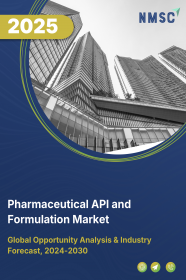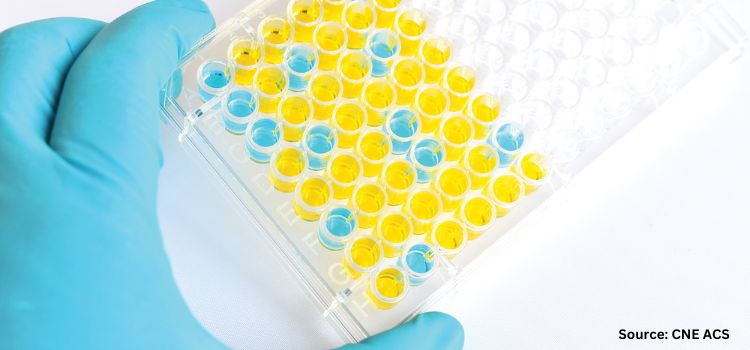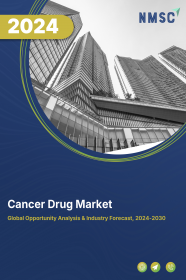
Cancer Drug Market by Drug Class (Chemotherapy, Targeted Therapy, Immunotherapy (Biologic Therapy), and Hormonal Therapy), by Indication (Lung Cancer, Stomach Cancer, Colorectal Cancer, Breast Cancer, Prostate Cancer, Liver Cancer, Esophagus Cancer, Cervical Cancer, Kidney Cancer, Bladder Cancer, and Other) - Global Opportunity Analysis and Industry Forecast, 2020 – 2030
Industry: Healthcare | Publish Date: 11-Dec-2024 | No of Pages: 385 | No. of Tables: 214 | No. of Figures: 184 | Format: PDF | Report Code : HC41
US Tariff Impact on Cancer Drug Market
Trump Tariffs Are Reshaping Global Business
Market Definition
The global Cancer Drug Market size was valued at USD 112.73 billion in 2019, and is predicted to reach USD 215.11 billion by 2030, with a CAGR of 5.9%, from 2020-2030.
Cancer is a chronic disease that tends to initiate abnormal growth of cells, leading to the formation of tumors, that have the tendency to propagate throughout the lymphatic system, blood, and tissues in the human body. Conversely, benign tumors are non-cancerous tumors. There are different types of cancers like lung cancer, stomach cancer, breast cancer, prostate cancer, liver cancer, esophagus cancer, cervical cancer, renal cancer, bladder cancer, and other. Cancer can be diagnosed with the help of various clinical investigations such as CT scans, blood tests, biopsy, and others diagnostic options. In the early stages of cancer, chemotherapy is used as first-line treatment, and for chronic cancer diseases targeted therapy, immunotherapy as well as a combination of different therapies is used as treatment options.
The leading behavioral and dietary risks such as, obesity, lack of physical activity, nutrient deficiency due to food habits, sedentary lifestyles, and higher consumption of alcohol & tobacco, are leading to higher prevalence of cancer worldwide; shall consequently propagate the growth of cancer drug market, in coming future.
Market Dynamics and Trends
Cancer caused nearly 9.6 million deaths in 2018, and it is the second-leading cause of death world-wide; according to the data provided by the World Health Organization. At the global level, about 1 in 6 deaths are due to cancer. This market scenario is responsible for creating new avenues for growth in the global cancer drug market.
However, the cost-effectiveness of cancer drugs along with their side effects are expected to adversely affect the global cancer drug industry growth.
Moreover, factors such as, increase in number of geriatric population, rising awareness about cancer treatment options, increasing investments in R&D activities regarding formulation of potent cancer drugs, advancements in product technologies as well as untapped market opportunities offered by emerging economies, are to create lucrative opportunities in the global cancer drug market, in coming future.
Market Segmentations and Scope of the Study
The global cancer drug market report has been analyzed based on drug class, indication and geography. Based on drug class, the global market is segmented into Chemotherapy, Targeted Therapy, Immunotherapy (Biologic Therapy), and Hormonal Therapy. Based on indication, the market is divided into Lung Cancer, Stomach Cancer, Colorectal Cancer, Breast Cancer, Prostate Cancer, Liver Cancer, Esophagus Cancer, Cervical Cancer, Kidney Cancer, Bladder Cancer, and Others. Geographic breakdown and analysis of each of the previously mentioned segments include regions comprising North America, Europe, Asia-Pacific, and RoW.
Geographical Analysis
North America dominated the global cancer drug market share in the past and is expected to maintain its dominance throughout the forecast period. This is attributed to well-established healthcare infrastructure, presence of specialized medical practitioners & surgeons, advancements in product technologies, increasing inclination towards sedentary lifestyles and easy access to premium chemotherapy treatments in this region.
Asia Pacific region is expected to witness a substantial growth in the global market throughout the forecast period, witnessing the highest CAGR values. Factors responsible for boosting the cancer drug market growth in this region are, improving healthcare infrastructures, growing consumer awareness about different cancer treatment options, increasing investment in R&D activities, raise in per-capita disposable incomes, as well as untapped market opportunities offered by the emerging economies present in this region.
Competitive Landscape
The cancer drug industry is highly competitive and consists of various market players. Some of the major market players include Astellas Pharma Inc., AbbVie Inc., Bristol-Myers Squibb Company, AstraZeneca PLC, f. Hoffmann-La Roche ltd., Celgene Corporation, Merck & Co., Inc., Johnson & Johnson (Janssen Global Services, LLC,), Pfizer Inc., and Novartis AG among others.
An upsurge in R&D activities and advancement in product technologies along with new product launches by the key players, is leading the healthcare infrastructure to new heights, thereby creating lucrative opportunities in the global cancer drug market.
For instance, in September 2019, a clinical trial study demonstrated that patients receiving Bristol-Myers Squibb’s immuno-oncology drugs OPDIVO and YERVOY as an initial treatment for advanced non-small cell lung cancer had longer life-span as compared to those undergoing normal chemotherapy.
In December 2019, Adaptimmune Therapeutics Plc., a pioneer in T-cell cancer treatment therapy and one of the major players in the global cancer drug market, announced that it has received RMAT (Regenerative Medicine Advanced Therapy) designation from the US Food and Drug Administration (FDA), for its ‘ADP A2M4,’ a therapeutic treatment for synovial sarcoma. In the same year ADP-A2M4 was granted ODD (Orphan Drug Designation) for the treatment of soft tissue sarcomas by the US FDA. RMAT opens the door for commercialization of ADP-A2M4, that shall enter the market by 2022.
Furthermore, in January 2020, Merck, a leading company in the global market, announced that it has achieved U.S. Food and Drug Administration approval for its ‘anti-PD-1 therapy,’ monotherapy for the treatment of patients suffering from Bacillus Calmette-Guerin (BCG)-unresponsive, high-risk, non-muscle invasive bladder cancer with carcinoma in situ (CIS), with or without papillary tumors, for whom undergo cystectomy is not a feasible option or is not advisable. KEYTRUDA is a drug that can be used in combination with various drugs to treat different types of cancer. Traditionally, for the patients suffering from BCG-unresponsive, high-risk, non-muscle invasive bladder cancer with CIS, there were limited non-surgical treatment options, but Merk’s KEYTRUDA proves to be a ray of hope encouraging the medical practitioners with new treatment option in the industry.
Key Benefits
-
The cancer drug market report provides a quantitative analysis of the current market and estimations through 2020-2030 that assist in identifying the prevailing market opportunities to capitalize on.
-
The study comprises a deep dive analysis of the cancer drug market trend including the current and future trends for depicting the prevalent investment pockets in the market.
-
The report provides detailed information related to key drivers, restraints and opportunities and their impact on the market.
-
The report incorporates competitive analysis of the market players along with their market share in the global market.
-
The SWOT analysis and Porters Five Forces model is elaborated in the study of the global market.
-
Value chain analysis in the market study provides a clear picture of the stakeholders’ roles.
Cancer Drug Market Key Segments
By Drug Class
-
Chemotherapy
-
Targeted Therapy
-
Immunotherapy (Biologic Therapy)
-
Hormonal Therapy
By Indication
-
Lung Cancer
-
Stomach Cancer
-
Colorectal Cancer
-
Breast Cancer
-
Prostate Cancer
-
Liver Cancer
-
Esophagus Cancer
-
Cervical Cancer
-
Kidney Cancer
-
Bladder Cancer
-
Other
By Geography
-
North America
-
U.S.
-
Canada
-
Mexico
-
-
Europe
-
UK
-
Germany
-
Spain
-
France
-
Italy
-
Rest of Europe
-
-
Asia-Pacific
-
China
-
India
-
Japan
-
South Korea
-
Australia
-
Rest of Asia-Pacific
-
-
RoW
-
Saudi Arabia
-
South Africa
-
Brazil
-
Remaining countries
-
Key Players:
-
Astellas Pharma Inc.
-
AbbVie Inc.
-
Bristol-Myers Squibb Company
-
AstraZeneca PLC
-
F. Hoffmann-La Roche ltd.
-
Celgene Corporation
-
Merck & Co., Inc.
-
Johnson & Johnson (Janssen Global Services, LLC,)
-
Pfizer Inc.
-
Novartis AG
Report Scope and Segmentation
|
Parameters |
Details |
|
Analysis Period |
2019–2030 |
|
Base Year Considered |
2020 |
|
Forecast Period |
2020–2030 |
|
Market Size Estimation |
Billion (USD) |
|
Market Segmentation |
By Drug Class Type (Chemotherapy, Targeted Therapy, Immunotherapy, Hormonal Therapy) By Indication (Lung Cancer, Stomach Cancer, Colorectal Cancer, Breast Cancer, Prostate Cancer, Liver Cancer, Esophagus Cancer, Cervical Cancer, Kidney Cancer, Bladder Cancer) |
|
Geographical Segmentation |
North America (U.S., Canada, Mexico) Europe (Germany, UK, Spain, France, Italy, Rest of Europe), Asia-Pacific (Australia, China, India, Japan, South Korea, Rest of APAC) Rest of World (Brazil, Saudi Arabia, South Africa, Remaining Countries) |
|
Companies Profiled |
Astellas Pharma Inc., AbbVie Inc., Bristol-Myers Squibb Company, AstraZeneca PLC, f. Hoffmann-La Roche ltd., Celgene Corporation, Merck & Co., Inc., Johnson & Johnson (Janssen Global Services, LLC,), Pfizer Inc., and Novartis AG. |

















 Speak to Our Analyst
Speak to Our Analyst



